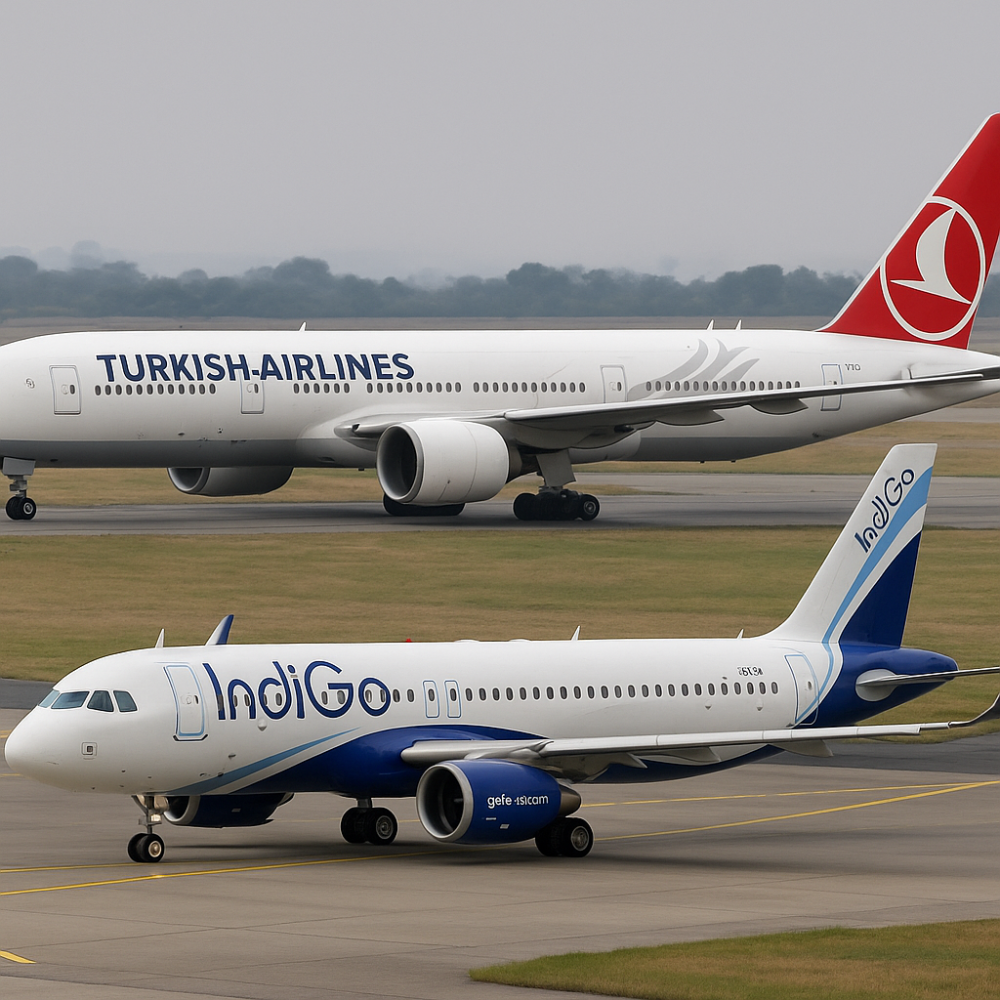
n a move that carries strong diplomatic and strategic overtones, Indian budget carrier IndiGo is reportedly set to terminate its codeshare partnership with Turkish Airlines. The decision comes amidst growing tensions between India and Turkiye over the latter’s repeated pro-Pakistan stance and anti-India rhetoric on global platforms.
According to sources close to the matter, the decision to end the partnership is not purely commercial but aligns with the Indian government’s growing displeasure over Turkiye’s international posturing. Officials see this as part of a broader recalibration of India’s foreign policy approach, particularly towards nations that challenge its sovereignty or align with hostile elements.
The codeshare agreement between IndiGo and Turkish Airlines, signed in 2019, enabled both carriers to seamlessly offer connectivity between India and Europe via Istanbul. Under the arrangement, Turkish Airlines operated flights between Istanbul and major Indian cities, while IndiGo provided domestic connections across India.
While the termination of the agreement may impact travel convenience for some passengers, especially those flying to Europe and the US via Istanbul, aviation insiders suggest that IndiGo is already exploring alternative international alliances. India's expanding global aviation ambitions may now favor partnerships with nations seen as more aligned with its geopolitical interests.
Turkiye’s consistent support for Pakistan on the Kashmir issue at various UN forums and President Recep Tayyip Erdoğan’s remarks critical of Indian policies have long strained bilateral ties. This latest move by IndiGo — although a corporate decision — is being widely interpreted as a strategic extension of India’s diplomatic stance.
The Indian Ministry of External Affairs has not issued an official statement yet, but government sources indicate that further steps in economic and cultural disengagement with Turkiye could follow if Ankara does not recalibrate its approach.
This development underscores how global geopolitics is increasingly influencing aviation, trade, and corporate diplomacy, with national interests now playing a critical role in shaping strategic business decisions.